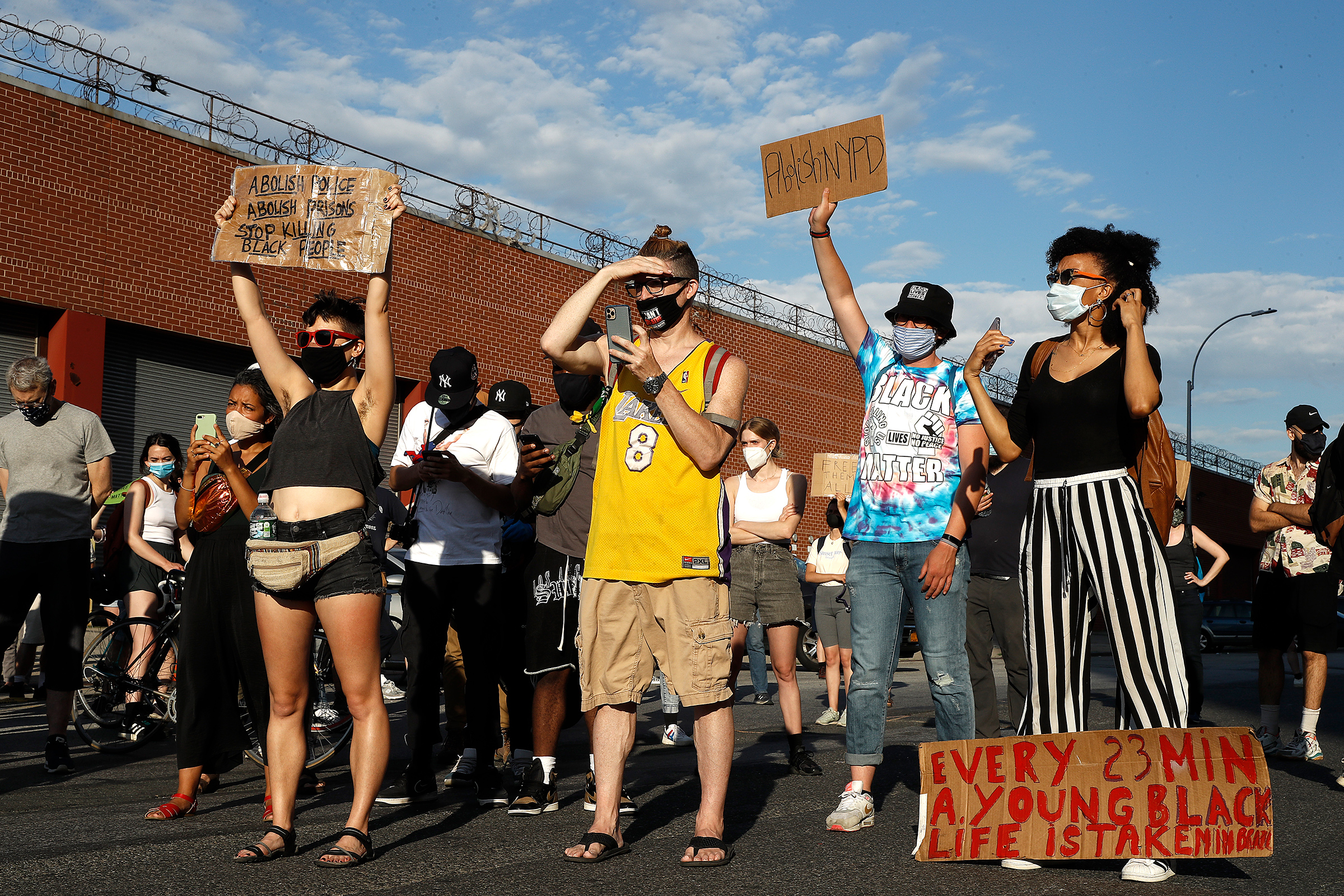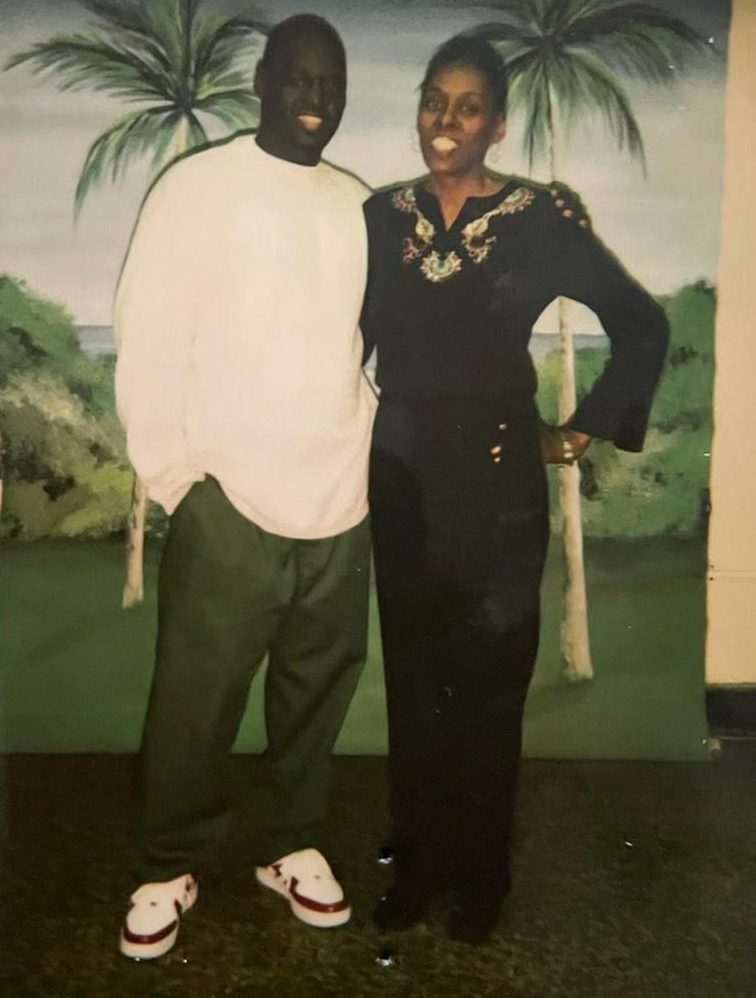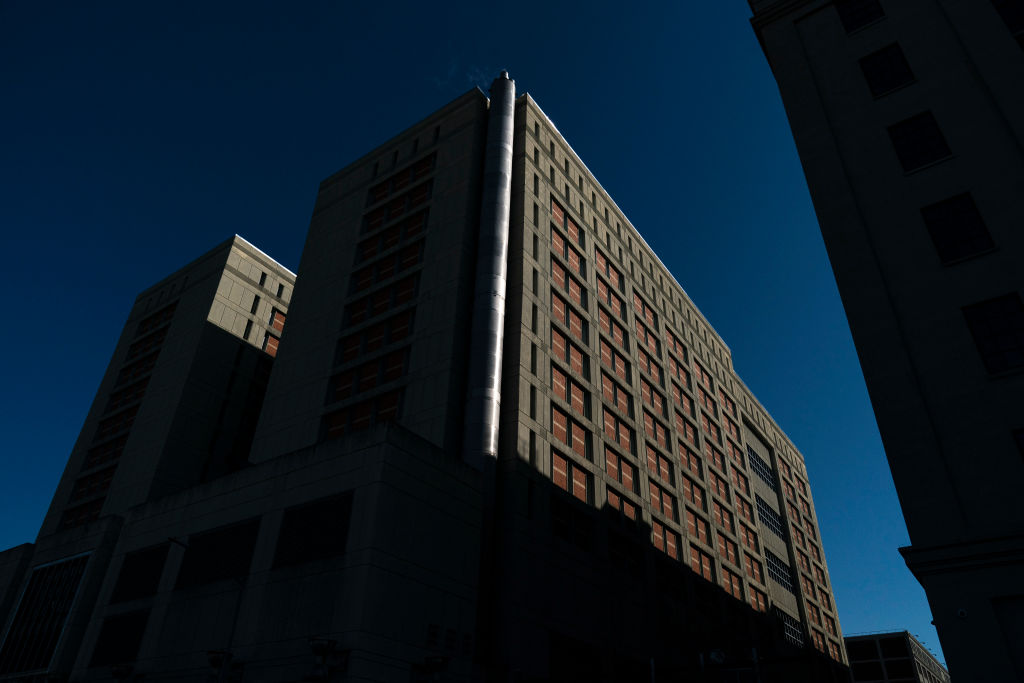
More than a year after his death, and with many of their questions still unanswered, the family of Jamel Floyd, a man who died in a New York City federal jail after being pepper-sprayed by guards, filed a lawsuit against the Bureau of Prisons (BOP) on June 23.
Floyd, 35, was being held at the Metropolitan Detention Center (MDC) in Brooklyn, and was just a few months away from parole eligibility. His death occurred just a week after George Floyd was killed by a police officer in Minneapolis and amid a larger reckoning on racial discrimination and violence at the hands of law enforcement.
With calls for accountability in these kinds of incidents still prevalent, Floyd’s family is fighting for their own justice—their suit asks that a case over his death is brought to trial.

The Floyd family organized a protest in Brooklyn earlier this month calling for officials to be held accountable and for the much-criticized jail to be shut down. Although Floyd’s mother Donna Mays is grateful for the community’s support—and attended the June 3 event—she’s not able to be out on the streets as much as she used to. “I’ve had to slow down for my health. I’m not sleeping and it’s not a good thing,” she tells TIME. “It’s hard to go on with life. Every day, you think about this. It pops in your head every single day. No mother should have to bear that.”
Jamel Floyd’s father, James Floyd, isn’t getting much sleep either—usually no more than three hours a night. “I’m tossing and turning, thinking about my son frequently,” he says. “I pray that God answers my prayers and brings this [jail] down … down to the ground.
“Over the course of just a few days in late May and early June 2020, Mr. Floyd experienced first-hand the brutal treatment that has given the MDC Brooklyn its reputation,” the Floyd family’s lawsuit states. On May 29, just a few days before his death, Floyd was assaulted by correctional officers in the facility, the suit alleges, after he was searched in a bathroom and a contraband cellphone was discovered.
He had to be taken to an outside hospital to treat injuries he sustained during the incident, according to the lawsuit. Lawyers representing the family say he was then placed in solitary confinement pending a disciplinary hearing for the cellphone. (And since he had been to an outside hospital, he was required to quarantine in a specific section of the jail’s solitary unit due to COVID-19 protocols.)
The BOP did not respond to TIME’s request for comment on the lawsuit’s allegations.
On June 3—and while still being held in solitary—Floyd began experiencing a medical or mental health crisis in his cell. He spent hours pleading for help and broke his cell window, attempting to get someone’s attention.
“Instead of assisting Mr. Floyd, dozens of correctional officers flooded into the unit where Mr. Floyd was confined. Officers sprayed several canisters of pepper spray directly into his locked cell. This grossly excessive use of force caused Mr. Floyd to collapse and experience a [fatal] heart condition,” the lawsuit says. (Floyd’s cause of death has been listed as a heart attack.)
“Instead of helping him, [correctional officers] treated him like he was a threat,” Nick Bourland, a lawyer representing the family, tells TIME. “They never summoned medical assistance until it was way too late. This is someone who was dying in their arms.”
Bourland and Katie Rosenfeld, another attorney representing the family, have spent the last year trying to get details on the circumstances around Floyd’s death. But, they say, the BOP has not been cooperative. Though they have sourced some information, they believe much more is being held back on the grounds that it pertains to an internal investigation into Floyd’s death, which is still ongoing. The FBI has also completed its own investigation, the lawyers note.
Bourland says they even had to take legal action to access Floyd’s prison medical records, after being denied information through a Freedom of Information Act request. “It is unheard of for a family to not get access to the deceased’s medical records. It’s harmful and hurtful,” Bourland says. “They had no reason to withhold them.”

The attorneys were able to see some security footage from the day of Floyd’s death, but it does not show what’s happening in his cell: “Most of what you see is people’s backs. You do see dozens of people respond to the scene. You see this massive response of people showing up with shields,” Rosenfeld explains.
It later shows Floyd being carried away in a restraint chair. “When the correctional officers called for a restraint chair, Mr. Floyd was neither violent nor out of control—he was unresponsive and experiencing a life-threatening cardiac emergency,” the lawsuit states.
None of the guards who approached Floyd in his cell had a handheld camera, though BOP policy states that this should have been the case. (Rosenfeld and Bourland say they have received no information as to why the policy was flouted.)
Read more: The Violence Against People Behind Bars That We Don’t See
Floyd’s death speaks to a larger issue within the criminal justice system, manifested in particular in the prison and jails. In public, it’s possible—albeit difficult—to monitor police behavior, with civilians able to serve as witnesses and document instances of misconduct or brutality.
This was the case in the murder of George Floyd, as then 17-year-old Darnella Frazier was able to film his death, while under arrest, on her cellphone. The footage completely discredited the Minneapolis Police Department’s account—which initially claimed that Floyd was suffering from a “medical incident”—of what happened.
But such oversight is near impossible in correctional facilities.
“Prisons are secretive places where things are made invisible because the people in power control what gets seen,” Rosenfeld says. “When [misconduct happens], there is no way for other people to intervene. It’s hard to get accountability and truth.”
The grief, both over Floyd’s death and that lack of accountability thereof, still feels raw for his family. Mays still visits her son’s grave at the cemetery two or three times a week. “It’s very exhausting,” she says. “You just don’t let go of a firstborn child. You gave them life, you gave them air and they took that away from you.”
Floyd’s sister, Tawanna Floyd, is struggling too. “It hurts me everyday. I try to keep my composure but I end up lashing out at people because I’m still angry inside,” she says. “I just miss him so much.”
And his brother Ramel Floyd says he tries to take the grief just “one day at a time.” Last month, he viewed the video footage from the time of Floyd’s death. “The reality of seeing it was definitely sad,” he says. “Watching it, you could just tell they did a lot of things they weren’t supposed to.”
More Must-Reads from TIME
- Cybersecurity Experts Are Sounding the Alarm on DOGE
- Meet the 2025 Women of the Year
- The Harsh Truth About Disability Inclusion
- Why Do More Young Adults Have Cancer?
- Colman Domingo Leads With Radical Love
- How to Get Better at Doing Things Alone
- Michelle Zauner Stares Down the Darkness
Write to Sanya Mansoor at sanya.mansoor@time.com and Josiah Bates at josiah.bates@time.com